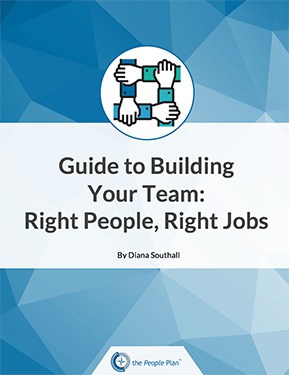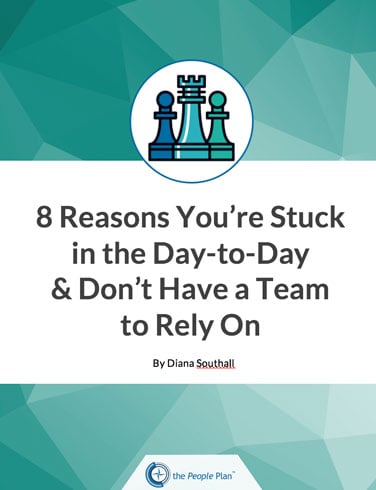The following is a version of a conversation I have regularly with clients:
Client: “We really need some help with our sales process. Some of our bids require hours of preparation and document gathering. Our estimator needed extra help as he uses all his time to get vendor estimates and compute the final price. So he had Mary take over the non-pricing part of the bid.”
Diana: “So how did that work?”
Client: “Well, Mary started well, but the day before the bid she seems frazzled and needed the estimator to help her finish the packet.”
Diana: “So did you win the work?”
Client: “No, the bid was disqualified because it was missing two important documents.”
Diana: “Was there a list of all requirements in the bid package?”
Client: “Yup- right in the first two pages, there was a checklist of every required items.”
Diana: “Okay, we have two areas to concentrate.
First, you might want to talk about process improvement—what could be done better for the next bid. (For example, one person is responsible to double-check everything is there 2 days before the bid is due.)
I would suggest you get those involved in the bid process in a room and outline and clarify the ideal process and timeline, and then assign responsibility.”
The second area- Do you see a trend in Mary’s performance in planning of projects and detail orientation? Is she normally prepared with every item needed, well in advance of a deadline? Does she “future pace” what is coming next, reaching out to others to get what she needs to do her part of the project?
Or do you see the frantic last minute dash to pull something together at the last minute, and then something is usually forgotten?”
This is a function of job fit, some people are comfortable working in the moment, and do not typically focus on the future requirements. Some people have the opposite work habits- they setup checklists, verify that the list is complete and double check everything.
Planning and organizing is a competency—a soft skill that is based on our consistent personality traits, and can be somewhat refined and developed. (And you can assess for this in the hiring process with a basic personality assessment).
If you step back and evaluate the trend of someone’s work habits, you will likely see a clear pattern of planning and organizing behaviors and results.
If Mary has not demonstrated a strong competency in planning and organizing, the solution is to give those tasks with someone else who has a stronger competency in this area (higher job fit). And then find short term and less detailed and crucial tasks that are a better job fit for Mary (increase her job fit).
Training and systems are most effective if someone already has the competency/ job fit in that area.
Want to learn more?
Find out how about how to identify the three main reasons someone isn’t keeping up (gap in ability, motivation or values) in our webinar “Evaluating Your Current Team for Job Fit.”
See our current webinar schedule and register here: People Plan Webinars
Image Courtesy of FreeDigitalPhotos.net.




